Did you know that one of the most commonly diagnosed conditions in the United States is a condition called low thyroid or hypothyroidism? While many receive this diagnosis due to nutritional factors, others have it as a result of an autoimmune disease, commonly known as Hashimoto’s or Hashimoto’s thyroiditis. Regardless of which type you may have, if you or your doctor suspect you have an issue with this organ, it’s important to understand what it is and what could be causing it.
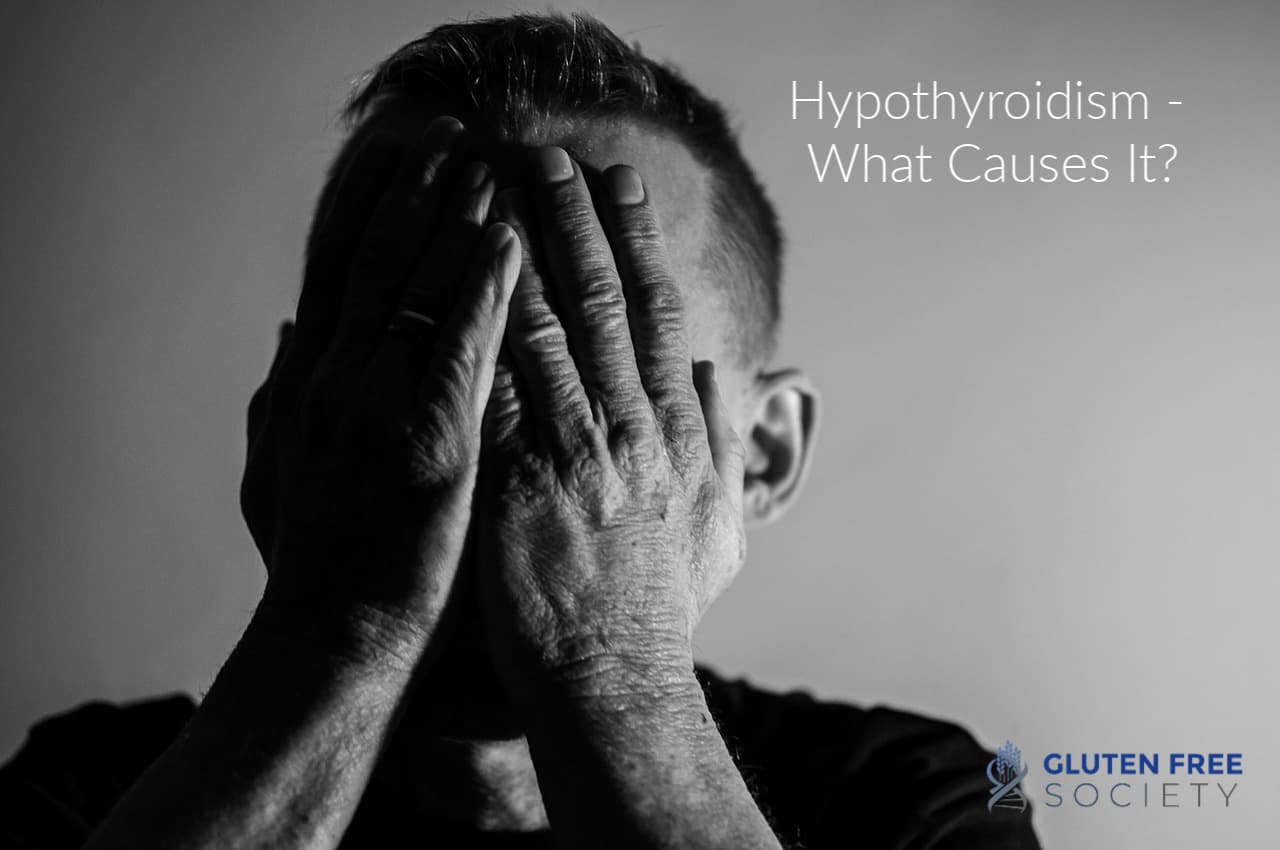
The Importance of the Thyroid
While most have heard of the thyroid, few actually understand what it does. This organ helps control metabolism, both the catabolic and anabolic systems. Catabolism takes place when chemical reactions break down parts of the body and anabolism occurs when chemical reactions help to build the body back up.
While this may seem strange, it’s important to note that the body is constantly breaking down old tissue and replacing it with new tissue. The gut is new every two to seven days, red blood cells turn over every three months, while white blood cells take about six months. If the thyroid is not working correctly, metabolism slows and turnover suffers. There could be a delay in the capacity to heal and individuals may become more prone to injuries, easy bruising, and exercise intolerance.
Signs of Hypothyroidism

So what are some of the signs of hypothyroidism? If experiencing the following, it may be a good idea to pay a visit to the doctor:
- Hair loss, thin, brittle nails, and thin, dry skin
- Brain fog and trouble recalling words
- Weight gain, or in some cases, weight loss
- Lethargy
- Fatigue
- Muscle Pain
If a doctor diagnoses hypothyroidism, it is important to understand whether it is an autoimmune issue like Hashimoto’s, or if it’s nutritional. The answer to this will determine a plan of action.
Autoimmune Triggers
If the body is experiencing hypothyroidism due to an autoimmune response, this means that the body is producing antibodies that may be attacking the thyroid hormone, the ability to produce the hormone or the receptors in which the hormone attaches. Common triggers of this include bisphenols (specifically Bisphenol A), perchlorates, fluorides, bromides, chlorides, coffee, and gluten.
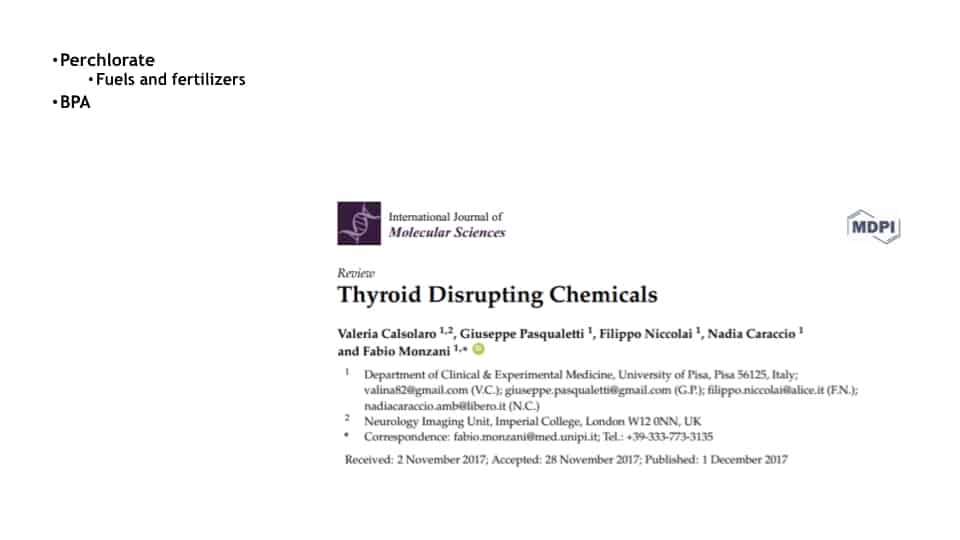
BPA & Hypothyroidism
When buying plastic products, there’s often a sign that says “BPA Free;” and, while this may seem like comfort, don’t be too quick to buy. BPA and other bisphenol chemicals are often found in plastics because of their ability to create elasticity. The problem, however, is that these chemicals are endocrine disruptors and can greatly impact the way iodine is taken up into the thyroid, which is vital for the production of the thyroid hormones.
In addition to drinking with plastic bottles, eating with plastic utensils, and cooking or storing food in plastic can also provide exposure. It’s also found in cosmetics, which could be why women tend to be more impacted by hypothyroidism than men.
Perchlorates
Another common endocrine disruptor is perchlorates. These can be found in things like jet fuel and fertilizer, but more common exposure comes from every-day pollution. To help with these, take steps to filter the air at home and in the workplace and consider investing in a reverse osmosis water filter rather than ineffective carbon filters.
Chlorine, Fluoride, and Bromine
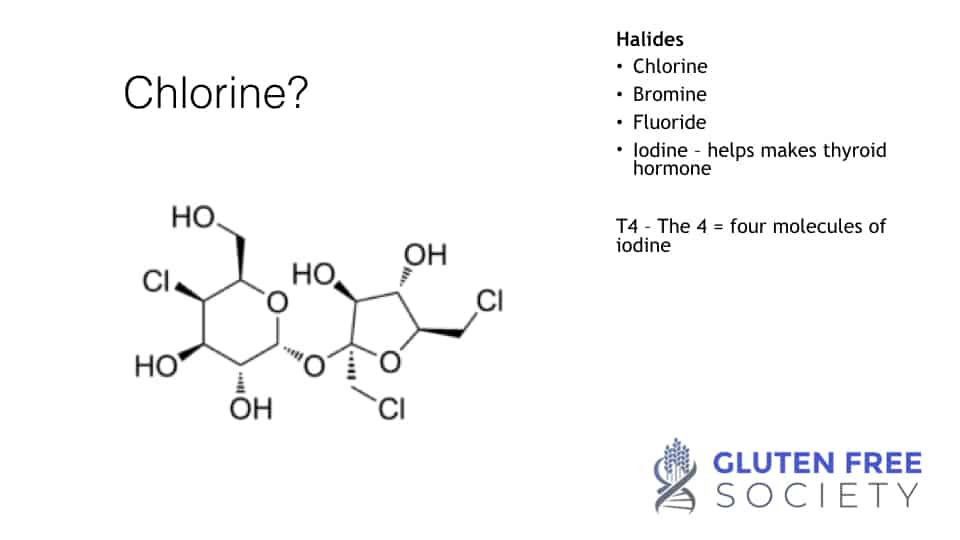
Other chemicals that often fight the uptake of iodine into the thyroid are what are known as Halides on the periodic table. These consist of chlorine, fluoride, and bromine. These can be found in:
- Sucralose, or more commonly known as Splenda
- Pesticides
- Drinking water (mostly in America)
- Toothpaste and mouthwash
- Green, black, and white teas
Gluten Can Cause Hypothyroidism
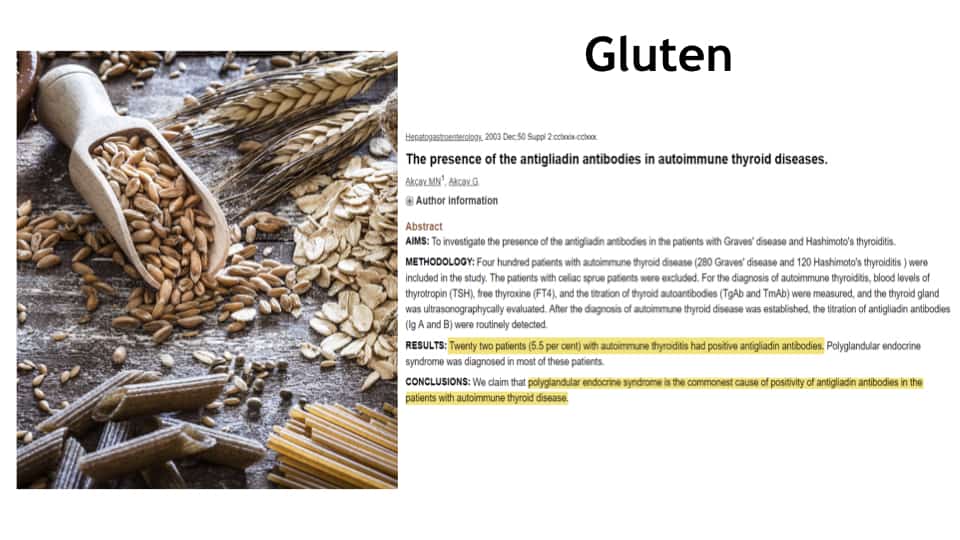
Another major contributor to hypothyroidism is gluten. It is known to directly contribute to Hashimoto’s and low thyroid, but it can also indirectly cause these through malnutrition.
This occurs because gluten sensitivity can damage the intestinal lining and block the absorption of key nutrients for this organ. The top two deficiencies include iron and B12 which are both necessary for this organ to function properly.
Coffee
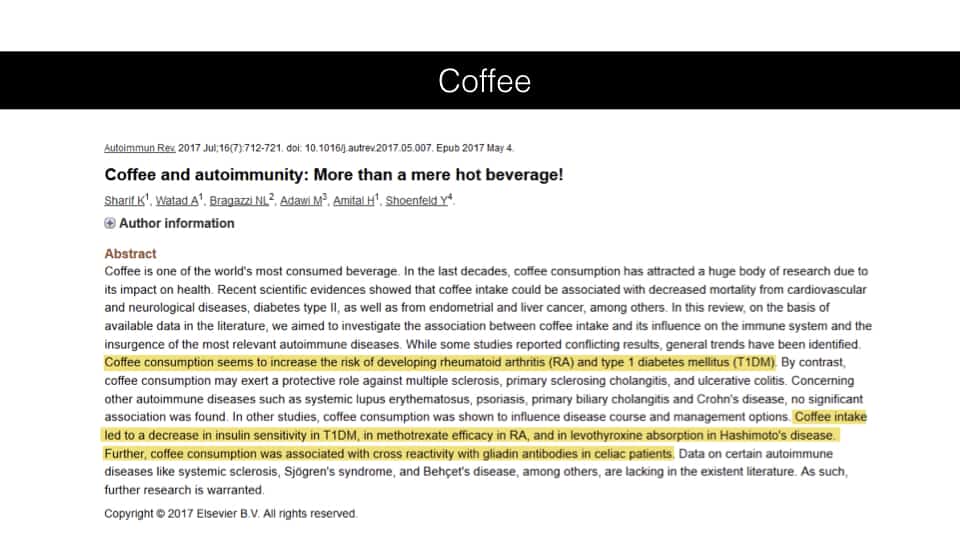
Though not necessarily dangerous for everyone dealing with these issues, coffee can reduce the impact and effectiveness of the hypothyroid medication. Furthermore, the proteins in coffee can mimic gluten, which again, is a known contributor to this disease.
Nutritional Causes
If not dealing with Hashimoto’s thyroiditis, then it’s likely this organ is not functioning due to nutritional causes. To understand why nutrition can have such an impact, it’s first important to understand how the thyroid works:
- The brain houses the pituitary gland which makes the thyroid-stimulating hormone (TSH). This is sent to the thyroid with a message to produce T4, which is inactive. T4 is then activated when converted to T3.
- T3 communicates to DNA within the cell through a receptor on the cell nucleus and helps to regulate metabolism.
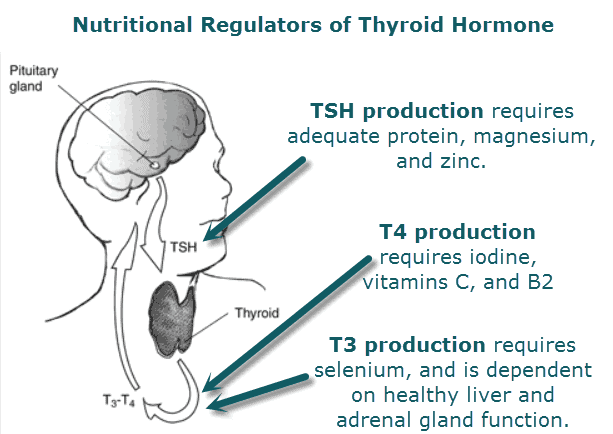
While this may seem straightforward, there are several minerals and nutrients that are required for this all to take place. These include:
- B12 and Magnesium are both required to regulate the production of TSH. The body will not sustain normal function without these.
- Tyrosine and Iodine, which are obtained through food, specifically protein-based foods, are necessary to make T4 and T3.
- Vitamin C and B are needed to connect tyrosine to iodine.
- Selenium and Iron are required to take away iodine and convert T4 to T3.
- Vitamins D and A are necessary for the thyroid hormone to communicate with the brain to speed up metabolism.
- Omega-three fatty acids are essential for DNA to drive up metabolism.
At the Doctor’s
If you suspect you have an issue with your thyroid, don’t wait to have it checked out. Your physician will likely measure TSH and if it is high, he or she will let you know that you have hypothyroidism. If numbers are low, this could indicate hyperthyroidism.
While this may have been what you suspected, don’t leave it at that. Be sure to ask questions and fully understand the condition before blindly accepting and taking medication. Knowing how to adjust your diet and lifestyle could have more of an impact than any prescription.
The post Dr. O – What Causes Low Thyroid Function appeared first on Gluten-Free Society.